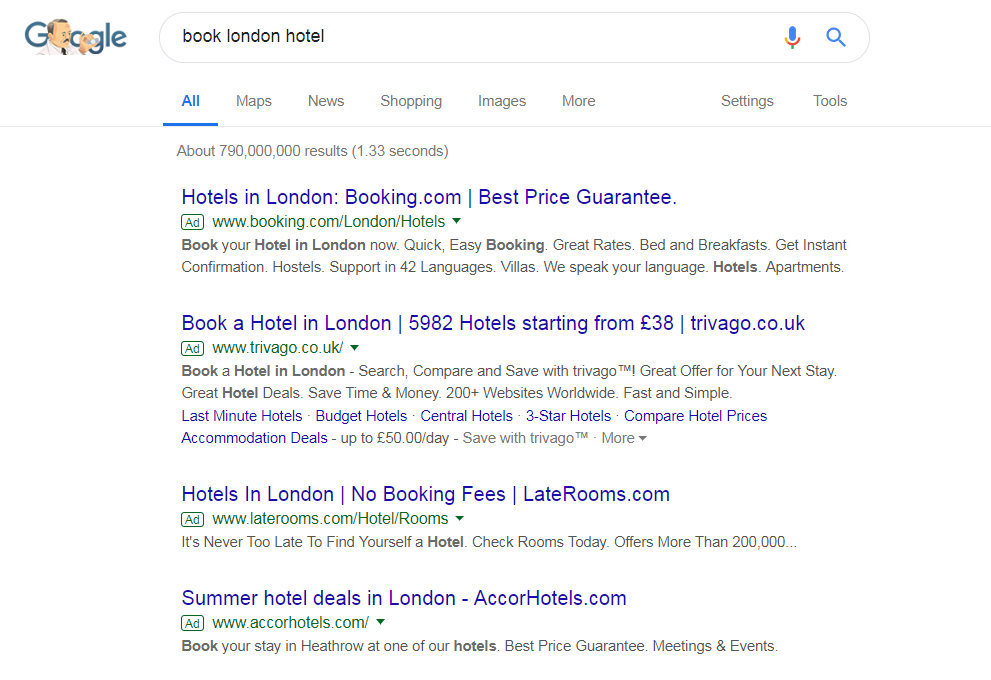The last PPC campaign I analysed in the ‘Analyse A Real PPC Campaign’ series was from GoSkyDive, who had, on the whole, a well designed PPC landing page – it was particularly effective to have a video animation of people sky diving on the landing page, to induce a sense of excitement with the web user.
One area that will always be demand is with hotels, especially in London. Looking into this industry, here is an analysis of a PPC campaign from Trivago.
To view Trivago’s PPC’s search advert, I had to type into Google search UK, ‘book london hotel’:
However, the second position is not as good for CTRs, in general, than the first position, so it is important that Trivago differentiate themselves from booking.com. They have achieved this with by:
- Mentioning the price of hotels in the title, adding financial incentive for those looking to save money.
- Using call to actions to provide extra links to click onto that the web user might be interested in.
- Call to actions in both the title and the description.
After clicking on the above advert, I came to the following landing page:
Now this is a very clean looking landing page, which can sometimes work to and against a business. On the one hand, it is very clear what Trivago wants the web user to do: lead capture a location, date and guest details to show a list of results for that. However, at the same time, the lack of content on this landing page does not allow the web user to browse the website fully – they are forced into giving a lead on hotels.
As much as this is a very well designed lead capture landing page, part of me thinks that this is unnecessary. It is important to always use the information captured in a search advert to your advantage. It happens far too often that advertisers target a demographic and then ignore the targeting by going for a vague landing page. An example would be bidding on ‘mens clothing’, where the landing page is a click through page for a ‘Mens’ and ‘Women’s’ clothing sections. Trivago knows the web user is interested in viewing hotels in London. Therefore, it might have made more sense to show the results directly, rather than a lead capture – if the lead capture is wrong for the dates and number of guests, the web user should easily be able to change it. From knowing the location of where the web user wants to stay, it is possible to show some sort of results on the landing page.





